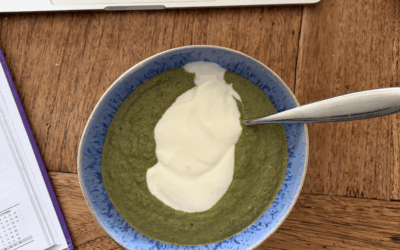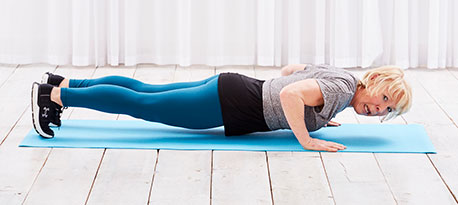When I say ‘good’ sleep, I’m talking at least 7 hours of uninterrupted snoozing. Ok… maybe one visit to the loo, but then you fall back to sleep without any tossing, turning, thinking of the day ahead, stressing, mulling or dwelling.
Does Sleep Affect Weight Loss?
Sleep deprivation affects our ability to lose fat. Yep. A really irritating fact but a true one. No matter how hard we may train or watch our diet, if the sleep thing isn’t happening, it may all be an uphill struggle.
Lack of sleep not only tempts us to avoid our normal exercise routine (and anything remotely energetic) but we crave foods that we shouldn’t. Anything carby or sweet looks delicious. Anything quick between two doorsteps of white bread looks like heaven. This is because, when we are tired, the rewarding part of the brain is switched on and we find it more and more difficult to say no to the box of homemade cakes which someone has ‘kindly’ brought into the office.
But the issues go much deeper than that. Sleep is like nutrition for the brain. Lack of it affects two very important hormones. Ghrelin and Leptin.
Ghrelin is the hunger hormone and tells you to eat. When your body is deprived of sleep, it makes more ghrelin.
Oh, great. That’s not helpful, is it?
On top of that, there’s Leptin. This is the hormone that tells us to stop eating. Leptin levels drop drastrically when we are tired so we have no idea if we are full or not. We just keep eating. It’s almost as if the more crisps you stuff down your face, the more your eyelids will stay open. Or so you think.
So, there we have it. A double whammy. Ghrelin and Leptin working together to fill our fat cells when we’re tired. It’s a lose lose. (Or rather a gain gain in fat level terms).
Oh wait… there’s more. When you’re utterly pooped, our stress levels also rise in a colossal way, which means that the body produces more Cortisol. And that can only mean one thing. More fat in your fat cells.
One study at the University of Colorado in early 2013 involved a small group of 30 people having just four hours of sleep a night each night for five nights. (They ate the right amount of food for their body type and size). At the end, these people put on, on average, two pounds of weight compared to another group in the project who had a good eight hours sleep per night.
There is also the question of insulin sensitivity. Researchers at the University of Chicago discovered that when your body and mind are tired, it doesn’t respond to insulin well. (Insulin is a hormone responsible for changing sugar and starch into energy). This means it will have trouble metabolising fats from your bloodstream and will end up storing them as fat.
This all means an increased risk of type II diabeties.
It’s not looking cheerful is it? So what can be done to increase our chances of regular deep sleep?
If you suffer regularly from lack of sleep then try these (some of the tips are obvious but you may not even realise that you’re doing them):
- Shut off the computer, TV, phone at least half an hour before you go to sleep. More if you can. Your friend’s outing to the Cotswolds on Facebook can wait, as can another episode of that history drama.
- Save your bedroom for sleep, sex and if there’s any reading to be done, make it fiction. Lose yourself in another world, not in anything work related. Empty your head a little.
- There are lots of sleepy teas and infusions on the market. Find one you like and make it a habit.
- Spray lavender oil on your pillow. Put a few drops in your bath and put some on your pulse points and behind your ears.
- Cut out stimulants before bed like coffee, chocolate and alcohol. No one ever got a good night’s sleep with half a bottle of Merlot inside them.
- For supper, try foods high in the amino acid tryptophan. These help boost the sleep-inducing hormone melatonin. Chicken, turkey, milk, dairy, nuts and seeds.
- Avoid sugary and processed foods at night (or ever!)
- Aim for at least 7 hours. Be strict with yourself and switch that light off.
- And of course, exercise! 🙂
Sweet dreams. Annie x





